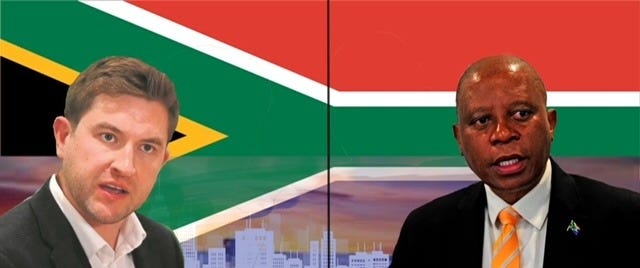Power Play in Tshwane: Political Manoeuvring at the Expense of Citizens
Power grabs in Tshwane show how political games take priority over genuine service delivery.
In the latest chapter of South Africa's turbulent political landscape, the removal of Cilliers Brink as mayor of the City of Tshwane through a motion of no confidence shines a harsh light on the games politicians play at the expense of the citizens they claim to serve. The African National Congress (ANC), in collaboration with ActionSA and other smaller parties, orchestrated the ouster of the Democratic Alliance (DA) mayor, citing disparities in service delivery between affluent suburbs and struggling townships. Yet beneath this seemingly noble cause lurks a familiar narrative: political power grabs, driven more by party interests than genuine care for the public.
The ANC and ActionSA have long accused the DA of focusing on wealthier, urban communities while neglecting poorer, more disenfranchised townships. ActionSA leader Herman Mashaba even claimed that the DA's "arrogance" and the glaring differences in service delivery between these two areas were behind his party's decision to break from the coalition and back the motion of no confidence. On the surface, this paints a picture of a party stepping up for the poor—but how much of this is sincere concern for equity, and how much is just political posturing?
It's difficult to ignore the political motivations at play here. Cilliers Brink’s removal wasn’t just about rectifying service delivery issues. The ANC and ActionSA's swift pivot towards working together to form a minority government is evidence that this is about seizing power. For the ANC, ousting the DA from one of the country's key metropolitan municipalities means reinforcing its political foothold. For ActionSA, positioning itself as a “kingmaker” offers a fast-track to relevance. In both cases, the citizens, especially those in the neglected townships, remain pawns.
What makes this political manoeuvre even more disconcerting is the lack of accountability demanded from these parties. The ANC’s past in local governance, particularly in Gauteng, has not been without scandal or failure. Corruption, mismanagement, and the hollowing out of municipal funds are realities that many South Africans know too well under ANC rule. ActionSA, too, needs to prove that it is not merely riding the wave of populist discontent but is genuinely committed to improving service delivery for all residents, not just wielding political influence.
If the ANC and ActionSA do take control of Tshwane, they must be held to the same standards they hold against the DA. For far too long, politicians have promised change for township communities only to see the same cycle of neglect and broken infrastructure. If these parties claim to be the champions of the disenfranchised, they will need to back up their rhetoric with action. The stark disparities between urban and township areas in service delivery can no longer be tolerated under any administration. Once in power, both the ANC and ActionSA must be transparent about how they allocate resources and ensure that the most vulnerable receive the attention they deserve.
The fate of Tshwane serves as a broader reminder that political power struggles, no matter how principled they may appear, often leave citizens as collateral damage. The constant jostling for control among the ANC, ActionSA, the EFF, and the DA is weakening governance structures, undermining service delivery, and, ultimately, making South Africans lose faith in their political representatives. In this game of thrones, it’s the residents of townships who suffer most from broken promises, eroding public services, and shifting alliances.
The case of Cilliers Brink is yet another example of how political machinations come before meaningful governance in South Africa. If the ANC and ActionSA want to hold the DA accountable for its alleged neglect of poorer communities, which they should if legitimate, they should also be prepared to face scrutiny when they gain power. Otherwise, the cycle of empty rhetoric will continue, and the only constant will be the citizens’ unfulfilled hope for better living conditions.


